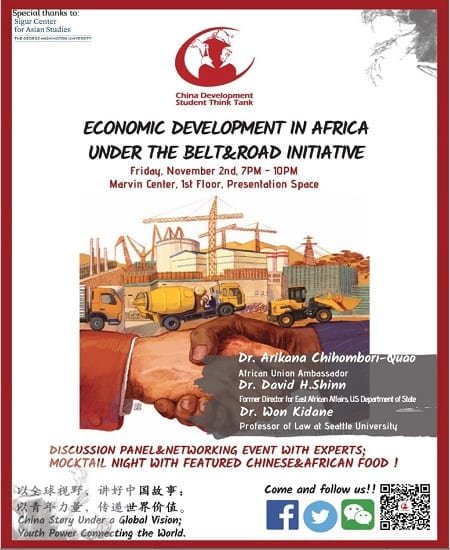
11/2/18: Economic Development in Africa under the Belt & Road Initiative

Sigur Center for Asian Studies
At the Elliott School of International Affairs


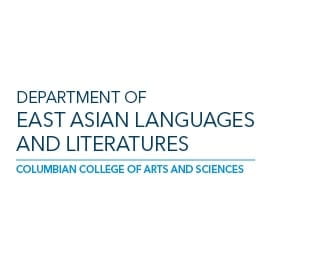

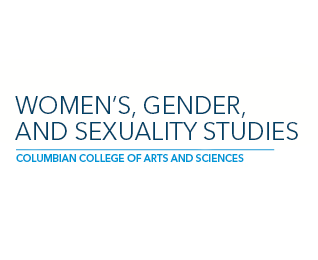
Monday, November 19, 2018 6:00 PM – 8:40 PM
Lindner Family Commons Suite 602
The Elliott School of International Affairs
1957 E Street, NW Washington, DC 20052
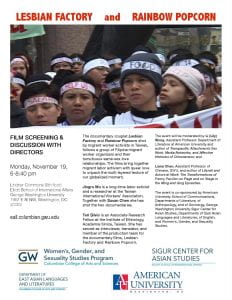
The American University School of Communications Departments of Literature, of Anthropology, and of Sociology, the George Washington University Sigur Center for Asian Studies, and the Departments of East Asian Languages and Literatures, and Women’s, Gender, and Sexuality Studies cordially invite you to a film screening and discussion of Lesbian Factory and Rainbow Popcorn, with featuring panelists Jingru Wu and Teri Silvio who worked on the production of the film as well as Assistant Professors Li (Lily) Wong of American University and Assistant Professor Liana Chen of the George Washington University.
This event is free and open to the public.
About the Event:
The documentary couplet Lesbian Factory and Rainbow Popcorn shot by migrant worker activists in Taiwan, follows a group of Filipina migrant worker organizers and their tumultuous same-sex love relationships. The films bring together migrant labor activism with queer love to unpack the multi-layered texture of our globalized moment.
The screening will be followed by a panel discussion featuring the directors of the movie, Jingru Wu and Teri Silvio.
About the Speakers:
Jingru Wu is a long-time labor activist and a researcher at the Taiwan International Workers’ Association. Together with Susan Chen she has shot the two documentaries.
Teri Silvio is an Associate Research Fellow at the Institute of Ethnology, Academia Sinica, Taiwan. She has served as interviewer, translator, and member of the production team for the documentary films, Lesbian Factory and Rainbow Popcorn.

Li (Lily) Wong received her PhD in Comparative Literature at University of California, Santa Barbara. Her research focuses on the politics of affect/emotion, gender/sexuality, comparative race, as well as media formations of transpacific Chinese, Sinophone, and Asian American communities. Her work can be found in journals including American Quarterly, Journal of Chinese Cinemas, Asian Cinema, Asian American Literary Review, Pacific Affairs and China Review International, among others. She has published book chapters in World Cinema and the Visual Arts (Anthem Press, 2012), Queer Sinophone Cultures (Routledge, 2013), and Divided Lenses: War and Film Memory in Asia (University of Hawai’i Press, 2016). She is the author of the book “Transpacific Attachments: Sex Work, Media Networks, and Affective Histories of Chineseness” (Columbia University Press, 2018).
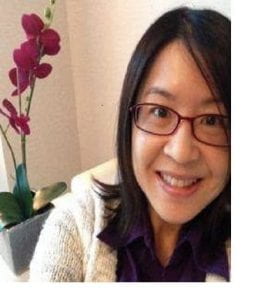
Liana Chen is an assistant professor in the Department of East Asian Languages and Literatures and director of the Chinese Program at George Washington University in Washington, D.C., where she is affiliated with the Sigur Center for Asian Studies and teaches courses on traditional and modern Chinese fiction and drama, film, and women writers.
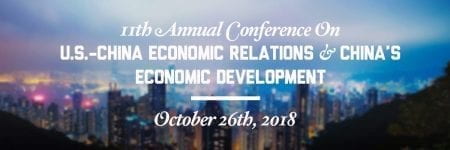
Friday, October 26, 2018
8:15 a.m. – 5 p.m.
The Commons, 6th Floor
Elliott School of International Affairs
1957 E Street, NW
Washington, DC 20052
We are delighted to invite you to the 11th annual conference on China’s Economic Development and U.S.-China Economic Relations at George Washington University. The importance of understanding China’s economic development has only become more important over the last decade. Understanding the structural building blocks of domestic Chinese economic activity is as necessary as understanding China’s foreign economic activity, whether regionally across the globe or in its interactions with the United States. Amid a trade war between the U.S. and China, it is vital that we have a shared understanding of what is taking place within the Chinese economy, how that affects relations with the U.S., and what it means for China’s global ambitions. We look forward to hosting you on October 26th to continue studying these important questions.
8:15 – 8:50 a.m. Coffee and Registration
8:50 – 9 a.m. Welcoming Remarks: Maggie Chen (IIEP Director, George Washington University)
9 – 9:45 a.m. Keynote
9:45 – 10:45 a.m. Trends in China’s Macro Economy
10:45 – 11 a.m. Coffee Break
11 a.m. – 12 p.m. Institutional and Firm Growth
12 – 1 p.m. Lunch
1 – 1:45 p.m. Keynote
1:45 – 2:45 p.m. The Myths of U.S.-China Trade War
2:45 – 3 p.m. Coffee Break
3 – 4 p.m. Going Out: China’s Aid, Investment, and Finance to Developing Countries
4 – 5 p.m. Gender, Migration, and Labor Markets in China

Thursday, October 25, 2018
12:30 PM – 1:45 PM
Chung-wen Shih Conference Room
Suite 503
The Elliott School of International Affairs
1957 E Street, NW
Washington, DC 20052

The Sigur Center for Asian Studies would like to invite you to a roundtable discussion with the 2018 Sigur Center summer language fellows to talk about their study abroad experiences in Asia! This event is open to the public and media.
Topics for Discussion:
Language Study in Taiwan
Language Study in Indonesia
Speakers:

Alexander Bierman is a M.A. candidate in Security Policy Studies focusing on East Asian security and cyber security. His interests include U.S. policy towards East Asia, Cross-Strait policy, and Chinese politics.
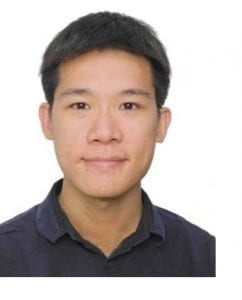 Amoz JY Hor is a PhD student in Political Science at the George Washington University. His research explores how emotions affect the way the subaltern is understood in practices of humanitarianism.
Amoz JY Hor is a PhD student in Political Science at the George Washington University. His research explores how emotions affect the way the subaltern is understood in practices of humanitarianism.
 Chloe King is a rising senior in the Elliot School, majoring in international affairs with minors in sustainability and geographic information systems. She spent seven months in Indonesia in 2017 as a Boren Scholar, researching NGO conservation initiatives in marine ecotourism destinations around the country. A PADI Divemaster, her passion for protecting the ocean keeps pulling her back to Indonesia and some of the most diverse—and threatened—marine ecosystems in the world.
Chloe King is a rising senior in the Elliot School, majoring in international affairs with minors in sustainability and geographic information systems. She spent seven months in Indonesia in 2017 as a Boren Scholar, researching NGO conservation initiatives in marine ecotourism destinations around the country. A PADI Divemaster, her passion for protecting the ocean keeps pulling her back to Indonesia and some of the most diverse—and threatened—marine ecosystems in the world.
 Alexandra Wong was a Sigur Center 2018 Asian Language Fellow who studied Mandarin in Taipei, Taiwan at National Taiwan Normal University’s Mandarin Training Center. Lexi is currently a second-year graduate student at The George Washington University’s Elliott School of International Affairs where she is studying International Affairs with a regional concentration on Asia.
Alexandra Wong was a Sigur Center 2018 Asian Language Fellow who studied Mandarin in Taipei, Taiwan at National Taiwan Normal University’s Mandarin Training Center. Lexi is currently a second-year graduate student at The George Washington University’s Elliott School of International Affairs where she is studying International Affairs with a regional concentration on Asia.
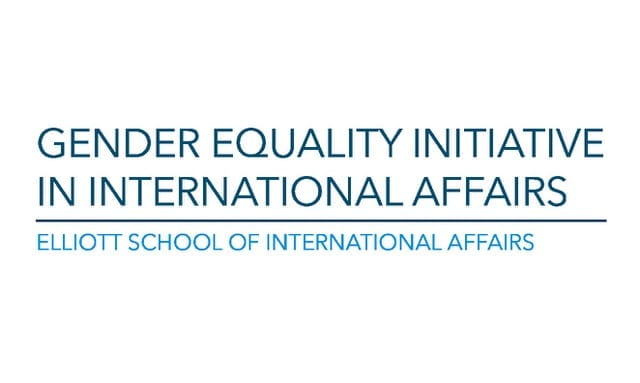

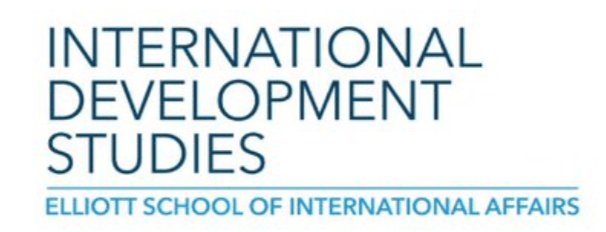

Thursday, October 25, 2018 5:00 PM – 6:30 PM
Lindner Family Commons Suite 602
The Elliott School of International Affairs
1957 E Street, NW Washington, DC 20052
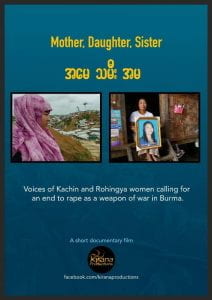
The Elliott School Gender Equality Initiative, Sigur Center for Asian Studies, International Development Studies and Kirana Productions cordially invite you to a film screening and discussion of Amae, Thamee, Ama (Mother, Daughter, Sister). Providing opening remarks will be the film’s director, Jeanne Marie Hallacy.
About the Film:
Mother, Daughter, Sister exposes the Burmese military’s practice of using rape as a weapon of war and gives voice to Kachin and Rohingya women activists calling for justice for these crimes. The film revolves around the stories of four women: Shamima, a volunteer counselor working with survivors of military rape in the Rohingya refugee camp in Bangladesh, Dil Kayas, a teenage survivor and San Lung and Lu Ra, the sister and mother of two Kachin school teachers brutally raped and killed in 2015, allegedly by the Burmese military. Powerful testimonies from survivors, witnesses and activists explore the far-reaching impact of sexual violence upon women and communities, woven with stories of courageous women calling for justice and a unified stand for an end to impunity.
About the Speakers:
Myo Win, Director of Smile Education and Development Foundation
Seng Raw, Deputy General Security of the Kachin Alliance
 Jeanne Marie Hallacy’s films are used for human rights education and advocacy. Hallacy develops relationships with her subjects to open their worlds through her lens; she can interview government ministers and slum dwellers and get a story. Her cross-cultural communications skills are an asset to covering issues from refugees to labor rights to people living with HIV. Based in Southeast Asia for decades, she worked with AsiaWorks Television, a regional production company to produce feature news for global broadcasters and advocacy videos for United Nations agencies and international NGOs. She is based in San Francisco and Bangkok and is available to travel worldwide.
Jeanne Marie Hallacy’s films are used for human rights education and advocacy. Hallacy develops relationships with her subjects to open their worlds through her lens; she can interview government ministers and slum dwellers and get a story. Her cross-cultural communications skills are an asset to covering issues from refugees to labor rights to people living with HIV. Based in Southeast Asia for decades, she worked with AsiaWorks Television, a regional production company to produce feature news for global broadcasters and advocacy videos for United Nations agencies and international NGOs. She is based in San Francisco and Bangkok and is available to travel worldwide.

Dr. Christna Fink joined the Elliott School in 2011. She is a cultural anthropologist who has combined teaching, research, and development work throughout her career. Her areas of expertise include Burma/Myanmar in particular and Southeast Asia more broadly, equitable development, gender and development, and civil society in ethnically diverse states.
The Sigur Center for Asian Studies would like to invite you to a roundtable discussion with the Sigur Center summer research fellows to talk about their research experiences in Asia!
Tuesday, October 2, 2018
12:30 PM – 1:45 PM
Chung-wen Shih Conference Room
Suite 503
The Elliott School of International Affairs
1957 E Street, NW
Washington, DC 20052
Topics for Discussion:
“Chinese Communist Party Military Strategy During the War of Resistance against Japan”
“Bringing Power-sharing Down to the Streets: Micro-level Interaction with the State in Myanmar”
“Religious Revival amid Riverine Erosion in the Island of Majuli, Assam”
Speakers:
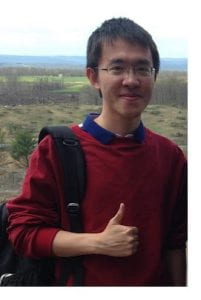 Zhongtian Han, is a history Ph.D. student interested in modern East Asia and strategic studies. His research focuses on the strategic history of modern China and Japan.
Zhongtian Han, is a history Ph.D. student interested in modern East Asia and strategic studies. His research focuses on the strategic history of modern China and Japan.
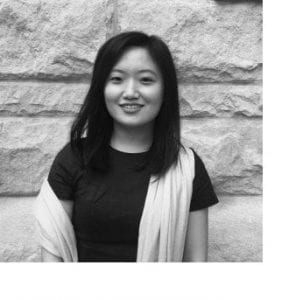
Jangai Jap, is a Ph.D. Candidate in George Washington University’s Political Science Department. Her research interest includes ethnic politics, national identity, local government and Myanmar politics. Her dissertation aims to explain factors that shape ethnic minorities’ attachment to the state and why has the state been more successful in winning over a sense of attachment from members of some ethnic minority groups than other ethnic minority groups. She has won the National Science Foundation Graduate Research Fellowship, and her dissertation research has received support from the Cosmos Club Foundation and GW’s Sigur Center for Asian Studies.
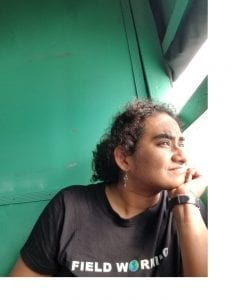 Shweta Krishnan, is a PhD Candidate in the department of Anthropology at George Washington University. Her research interests include the anthropology of religion, science and the environment. Her current project explores religious revival amid riverine erosion in the island of Majuli, Assam.
Shweta Krishnan, is a PhD Candidate in the department of Anthropology at George Washington University. Her research interests include the anthropology of religion, science and the environment. Her current project explores religious revival amid riverine erosion in the island of Majuli, Assam.
 Ichhya Pant, works at the intersection health, evaluation, data and information and communication technologies (ICTs) with a focus on vulnerable population such as immigrants, refugees, women and children. Currently, she serves as a Research Scientist focusing on monitoring and evaluation on the RANI Project which aims to test whether a multi-level social norms based intervention will reduce anemia in women of reproductive age in Odisha, India.
Ichhya Pant, works at the intersection health, evaluation, data and information and communication technologies (ICTs) with a focus on vulnerable population such as immigrants, refugees, women and children. Currently, she serves as a Research Scientist focusing on monitoring and evaluation on the RANI Project which aims to test whether a multi-level social norms based intervention will reduce anemia in women of reproductive age in Odisha, India.

Thursday, October 4, 2018
12:30 PM – 2:00 PM
Lindner Family Commons – Room 602 (6th Floor)
The Elliott School of International Affairs
1957 E Street, NW
Washington, DC 20052
The Sigur Center for Asian Studies will host a panel of news journalists based in Washington, DC reporting from a variety of Asia-based news outlets to discuss how audiences in Asia view contemporary U.S. politics and government.
Light refreshments will be available. This event is free to the public, but is off the record and not for attribution.
Speakers:
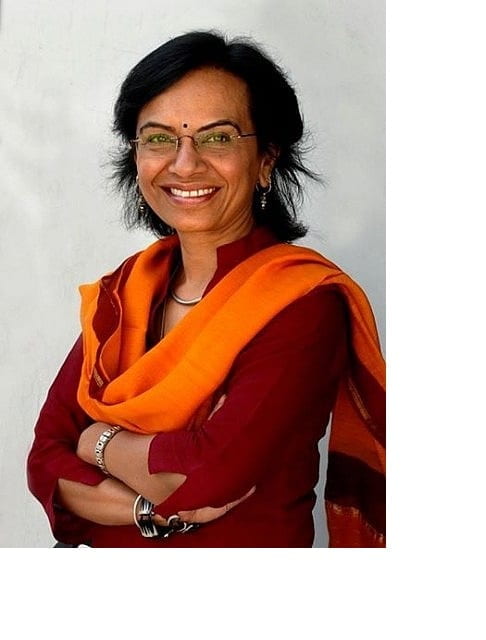
Ms. Seema Sirohi is a graduate of Delhi University in India. She has a Master’s degree in journalism from Jawarahal Nehru University in Delhi and an M.A. In sociology from the University of Kansas in the USA. She has worked as a reporter for the Associated Press and as a correspondent and feature writer for the Telegraph. She has also served as a writer and editor for a number of internationally prominent newspapers and magazines. Since 2011, she has been a correspondent and columnist for the Economic Times , India’s largest daily business newspaper.

Mr. Prashanth Parameswaran has lived in Malaysia, Singapore and the Phillipines. He is currently a Ph.D candidate at the Fletcher School of Law and Diplomacy at Tufts University. He has previously worked on Asian affairs at several think tanks in the U.S., including the Center for Strategic and International Studies in Washington. And he is currently senior editor of The Diplomat Magazine which covers Asian affairs and has its headquarters in D.C.

Mr. Takeshi Kurihara is a graduate of the University of Tokyo where he earned a B.A. in journalism. He began his career as a reporter for NHK (Japan public television), working in western Japan and then eventually was transferred to Tokyo where he worked as a political reporter. Takeshi first came to the United States as a visiting scholar at Stanford University in 2015. In June 2018, he was transferred to the Washington bureau of NHK where he specializes in covering news related to U.S. government policies.
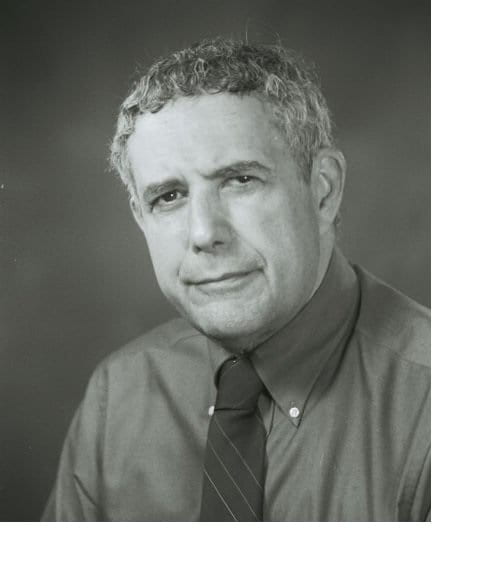
Moderator: Professor Andrew Krieger, senior adjunct professor at Montgomery College in Rockville, MD; teaches courses in international relations, sociology, and American government.
Monday, September 24, 2018
12:30 PM – 1:45 PM
Room 505
The Elliott School of International Affairs
1957 E Street, NW
Washington, DC 20052
This event is co-sponsored with the Rising Powers Initiative
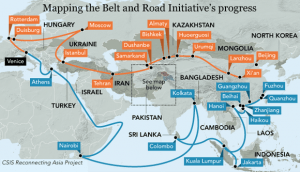
The Sigur Center for Asian Studies and the Rising Powers Initiative will host an event on the Indo-Pacific to assess whether maritime and political trends in the region are advancing regional connectivity or setting the stage for greater mistrust and conflict. Experts on China, India and Japan will consider the nature of these countries’ Indo-Pacific strategies, whether these strategies are driven by economic or strategic motivations, how the Belt and Road Initiative and the Asia-Africa Growth Corridor are evolving, and implications for the role of the U.S.
This event is public and open to the media. Light refreshments will be available.
Speakers:
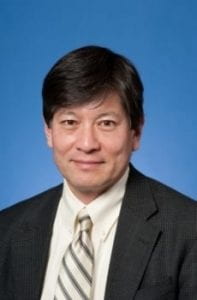

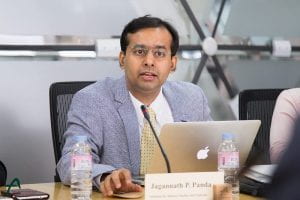
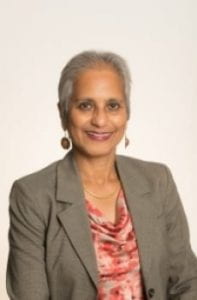
(From left to right)
Dr. Mike Mochizuki, Associate Professor of Political Science and International Affairs, and Japan-U.S. Relations Chair in Memory of Gaston Sigur at the Elliott School of International Affairs, George Washington University; Co-Director, Memory and Reconciliation in the Asia-Pacific, Sigur Center for Asian Studies. Professor Mochizuki holds the Japan-U.S. Relations Chair in Memory of Gaston Sigur at the Elliott School of International Affairs at The George Washington University. Dr. Mochizuki was director of the Sigur Center for Asian Studies from 2001 to 2005. He co-directs the “Memory and Reconciliation in the Asia-Pacific” research and policy project of the Sigur Center. Previously, he was a Senior Fellow at the Brookings Institution. He was also Co-Director of the Center for Asia-Pacific Policy at RAND and has taught at the University of Southern California and Yale University.
Dr. Robert Sutter, Professor of Practice of International Affairs; Director, B.A. Program in International Affairs, George Washington University. A Ph.D. graduate in History and East Asian Languages from Harvard University, Sutter taught full time for ten years at Georgetown University’s School of Foreign Service and part-time for thirty years at Georgetown, George Washington, Johns Hopkins Universities, or the University of Virginia. He has published 21 books, over 200 articles and several hundred government reports dealing with contemporary East Asian and Pacific countries and their relations with the United States. His most recent books are: Foreign Relations of the PRC: The Legacies and Constraints of China’s International Politics since 1949 (Rowman & Littlefield 2018); US-China Relations: Perilous Past, Uncertain Present (Rowman & Littlefield 2018); Chinese Foreign Relations: Power and Policy Since the Cold War (Rowman & Littlefield 2016); The United States and Asia; Regional Dynamics and 21st Century Relations (Rowman & Littlefield 2015). Sutter’s government career (1968-2001) focused on Asian and Pacific affairs and US foreign policy. He was the Director of the Foreign Affairs and National Defense Division of the Congressional Research Service, the National Intelligence Officer for East Asia at the US National Intelligence Council, the China Division Director at the Department of State’s Bureau of Intelligence and Research, and professional staff member of the Senate Foreign Relations Committee.
Dr. Jagannath Panda, Research Fellow and Coordinator of the East Asia Centre at the Institute for Defence Studies and Analyses, New Delhi. Dr. Panda is primarily based out of New Delhi where he holds the position of Research Fellow and Centre Head for East Asia at the Institute for Defence Studies and Analyses (ISDA) where he is in charge of the East Asia Centre’s academic and administrative activities. These include Track-II and Track 1.5 dialogues with the Chinese, Japanese and Korean think-tanks and institutes. He is a recipient of V. K. Krishna Menon Memorial Gold Medal (2000) from the Indian Society of International Law & Diplomacy in New Delhi. He is the author of India-China Relations: Politics of Resources, Identity and Authority in a Multipolar World Order (Routledge: 2016) and a Member of the Editorial Board of the Journal of Asian Public Policy (Routledge). He is also affiliated (honorary) to the Institute of Transnational Studies (ITS), Germany/Italy. Dr. Panda is the first South Asian scholar to receive the prestigious East Asia Institute (EAI) fellowship. He has also received a number of prestigious fellowships such as the STINT Asia Fellowship from Sweden, Carole Weinstein Fellowship from the University of Richmond, Virginia, USA; National Science Council (NSC) Visiting Professorship from Taiwan; Visiting Scholar (2012) at University of Illinois (Urbana-Champaign), USA and Visiting Fellowship from Shanghai Institute of International Studies (SIIS) in Shanghai, China. He has been invited as lead speaker to talks, seminars, conferences and symposiums and have also chaired prominent events. Dr. Panda has published in leading peer-reviewed journals like Journal of Asian Public Policy (Routledge), Journal of Asian and African Studies (Sage), Asian Perspective (Lynne Reiner), Journal of Contemporary China (Routledge), Georgetown Journal of Asian Affairs (Georgetown), Strategic Analyses (Routledge), China Report (Sage), Indian Foreign Affairs Journal (MD Publication), Portuguese Journal of International Affairs (Euro Press) etc.
Moderator: Dr. Deepa M. Ollapally, Director of the Rising Powers Initiative and Research Professor of International Affairs, George Washington University. Deepa Ollapally is directing a major research project on power and identity and the worldviews of rising and aspiring powers in Asia and Eurasia. Her research focuses on domestic foreign policy debates in India and its implications for regional security and global leadership of the U.S. Dr. Ollapally has received major grants from the Carnegie Corporation, MacArthur Foundation, Ford Foundation, the Rockefeller Foundation and the Asia Foundation for projects related to India and Asia. She is a frequent commentator in the media, including appearances on CNN, BBC, CBS, Reuters TV and the Diane Rehm Show.
Friday, August 31, 2018
12:30 PM – 1:45 PM EDT
Lindner Commons – Room 602
1957 E St. NW
Washington DC 20052
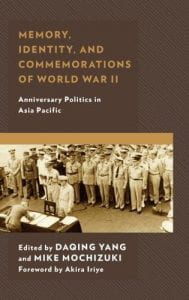
Why do some governments and societies attach great significance to a particular anniversary year whereas others seem less inclined to do so? What motivates the orchestration of elaborate commemorative activities in some countries? What are they supposed to accomplish, for both domestic and international audience? In what ways do commemorations in Asia Pacific fit into the global memory culture of war commemoration? In what ways are these commemorations intertwined with current international politics?
This book presents the first large-scale analysis of how countries in the Asia Pacific and beyond commemorated the seventieth anniversaries of the end of World War II. Consisting of in-depth case studies of China, Taiwan, Korea, Japan, Singapore, the Philippines, United States, Russia, and Germany, this unique collective effort demonstrates how memories of the past as reflected in public commemorations and contemporary politics—both internal and international—profoundly affect each other.
About the Speakers:
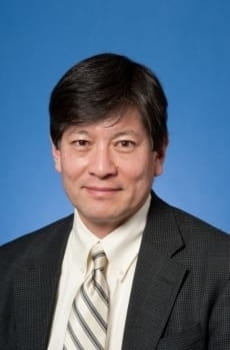
Dr. Mike Mochizuki holds the Japan-U.S. Relations Chair in Memory of Gaston Sigur at the Elliott School of International Affairs at The George Washington University. Dr. Mochizuki was director of the Sigur Center for Asian Studies from 2001 to 2005. He co-directs the “Memory and Reconciliation in the Asia-Pacific” research and policy project of the Sigur Center. Previously, he was a Senior Fellow at the Brookings Institution. He was also Co-Director of the Center for Asia-Pacific Policy at RAND and has taught at the University of Southern California and Yale University.
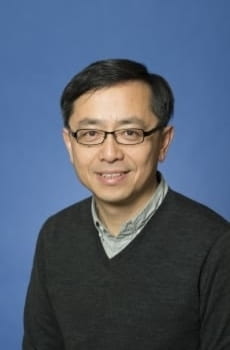
Dr. Daqing Yang graduated from Nanjing University and received his Ph.D. from Harvard University. He specialized in the history of modern Japan. His research interests include the Japanese empire, technological developments in modern Japan, and the legacies of World War II in East Asia. In 2004, Dr. Yang was appointed a Historical Consultant to The Nazi War Crimes and Japanese Imperial Government Records Interagency Working Group at the U.S. National Archives. Professor Yang is a founding co-director of the “Memory and Reconciliation in the Asia Pacific” program based in the Sigur Center for Asian Studies, and is currently working on a new project on postwar China-Japan reconciliation. He is the author of Technology of Empire: Telecommunications and Japanese Expansion in Asia, 1883-1945. He co-edited the following books: Historical Understanding that Transcend National Boundaries, which was published simultaneously in China and Japan; Rethinking Historical Injustice and Reconciliation in Northeast Asia; and Communications Under the Seas: The Evolving Cable Network and Its Implications.

Dr. Robert Sutter is Professor of Practice of International Affairs at the Elliott School of George Washington University beginning in 2011. He also serves as the school’s Director, Program of Bachelor of Arts in International Affairs. A Ph.D. graduate in History and East Asian Languages from Harvard University, he has published 21 books, over 200 articles and several hundred government reports dealing with contemporary East Asian and Pacific countries and their relations with the United States. His most recent books are: Foreign Relations of the PRC: The Legacies and Constraints of China’s International Politics since 1949 (Rowman & Littlefield 2018); US-China Relations: Perilous Past, Uncertain Present (Rowman & Littlefield 2018); Chinese Foreign Relations: Power and Policy Since the Cold War (Rowman & Littlefield 2016); The United States and Asia: Regional Dynamics and 21st Century Relations (Rowman & Littlefield 2015). Professor Sutter’s government career (1968-2001) focused on Asian and Pacific affairs and US foreign policy.
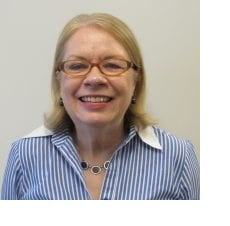
Dr. Lily Gardner Feldman is currently the Harry & Helen Gray Senior Fellow at AICGS at Johns Hopkins University. She also directs the Institute’s Society, Culture & Politics Program. She has a PhD in Political Science from MIT. Dr. Gardner Feldman has published widely in the U.S. and Europe on German foreign policy, German-Jewish relations, international reconciliation, non-state entities as foreign policy players, and the EU as an international actor. Her latest publications are: Germany’s Foreign Policy of Reconciliation: From Enmity to Amity, 2014; “Die Bedeutung zivilgesellschaftlicher und staatlicher Institutionen: Zur Vielfalt und Komplexität von Versöhnung,” in Corine Defrance and Ulrich Pfeil, eds., Verständigung und Versöhnung, 2016; and “The Limits and Opportunities of Reconciliation with West Germany During the Cold War: A Comparative Analysis of France, Israel, Poland and Czechoslovakia” in Hideki Kan, ed., The Transformation of the Cold War and the History Problem, 2017 (in Japanese). Her work on Germany’s foreign policy of reconciliation has led to lecture tours in Japan and South Korea.
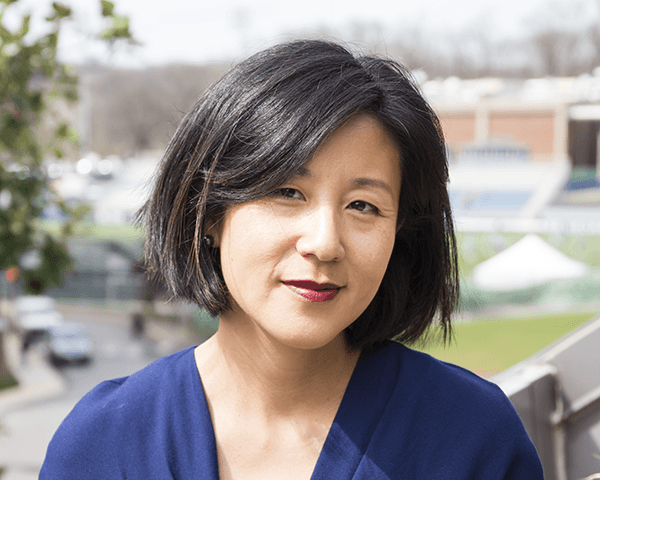
Dr. Christine Kim is Associate Professor of Teaching in the School of Foreign Service of Georgetown University. An historian by training, she teaches courses on modern Korea and East Asia at both the undergraduate and graduate levels; topics include comparative colonialisms, twentieth century conflicts, political symbolism, and film. Her research and writing focus on national identity, material culture, and political movements. The King Is Dead (forthcoming) explores the ways that colonization and modernization influenced Korean polity and identity during the late nineteenth and early twentieth centuries. She is also engaged in a study examining cultural heritage and arts management in Korea in the twentieth century. Kim is the recipient of numerous fellowships, including ones from the Department of Education (Fulbright-Hays), the National Endowment for the Humanities, the Korea Foundation, the Academy of Korean Studies, and the East-West Center.
Tuesday, July 24, 2018
12:30 PM – 1:30 PM
Lindner Family Commons – Room 602 (6th Floor)
Elliott School of International Affairs
1957 E St. NW, Washington, DC 20052
This event is co-sponsored with the Global Taiwan Institute. This event is free and open to the public and media.

Wind Turbines in Taichung, Taiwan, June 19, 2016. Image Credit: EPA/Ritchie B. Tongo
Event Description:
Climate change is as much an environmental issue as it is a national security concern for Taiwan. While Taiwan is not a member of the United Nations, its energy policies are guided by the Paris Climate Accord. Although Taiwan was not even among the top 10 countries for offshore wind in 2017, it is now leading the way in Asia through partnerships with several European companies, which see Taiwan as an entry to the Asian offshore wind power market.
Taiwan’s recent push towards renewable energy follows the 2011 Fukushima Disaster in Japan. In the aftermath of that disaster, public opinion in Taiwan shifted dramatically against the use of nuclear power due to its potential danger. President Tsai Ing-wen was elected into office in 2016 on a promise that Taiwan will become “nuclear-free” by 2025. Yet in 2017, the island experienced significant power outages that raised some doubts about the viability of the government’s ambitious plan for Taiwan’s energy future.
Please join the Global Taiwan Institute and co-sponsor, The Sigur Center for Asian Studies at George Washington University, on July 24th to explore the future of Taiwan’s energy. This event is the third installment of the Civil Society and Democracy Series, which is partially funded by the Taiwan Foundation for Democracy. The panelists will discuss Taiwan’s policy and opportunities in sustainable energy, how it will impact the Asia-Pacific region, and what it means for US interests.
Please direct questions or concerns to Global Taiwan Institute Program Associate Marzia Borsoi-Kelly.
** Media that would like to bring additional crew members or equipment, please contact Ms. Borsoi-Kelly directly.
Panelists
Wen-Yu Weng is a low-carbon energy and sustainability consultant. Currently based at the Carbon Trust in the UK, she delivers and designs low-carbon strategy and implementation projects in Southeast Asia, East Asia, the UK, and other European countries, working closely with local partners, governments, the private sector, and international organizations. She has particular interests in solar and wind energy, storage and grid issues, energy policy, circular economy, green finance, and the application of IT innovations for a low-carbon future. Outside her environmental consultancy and research work, Wen-Yu co-founded the Emerging Leaders Program at the Caux Dialogue on Land and Security in Switzerland, and is also the Co-founder of the non-profit Taiwan Debate Union. She received her M.Sc. in Environmental Policy from the University of Oxford, as well as a M.Sc. in Development Studies from the London School of Economics and Political Science.
Clara Gillispie is the Senior Director of Trade, Economic, and Energy Affairs at the National Bureau of Asian Research (NBR). Her subject-matter expertise focuses on shaping program and research agendas on energy security, trade and innovation policies, public health and the environment, and geopolitical trends in the Asia-Pacific. Prior to joining NBR in 2011, Ms. Gillispie served as a consultant for Detica Federal Inc. (now a part of BAE Systems), where she conducted program assessments and policy reviews for US government clients. She has also worked both at the US House Committee on Science, Technology, and Space and the American Chamber of Commerce in the People’s Republic of China. Ms. Gillispie graduated from the London School of Economics and Peking University with a dual M.Sc. in International Affairs. Prior to her graduate studies, Ms. Gillispie received a B.S. from Georgetown University and attended Sophia University in Tokyo, Japan, for language training.
Lotta Danielsson is the Vice President of the US-Taiwan Business Council. Lotta’s duties include membership retention and development, research on current Taiwan policy issues, and research to identify the needs of U.S. businesses in Taiwan. She oversees all member products and services, and manages the development of new value-added membership services. She also oversees all events and conferences, and she has planned the annual US-Taiwan Defense Industry Conference – which serves as an important platform for bilateral dialogue on Taiwan’s national security and defense needs – since its inception in 2002. As a student in the three-year International MBA program (Chinese Track) at the University of South Carolina, Lotta spent 19 months studying Mandarin Chinese in Taipei, Taiwan and in Beijing, China. Lotta also holds a Bachelor’s degree in Anthropology from Georgia State University.